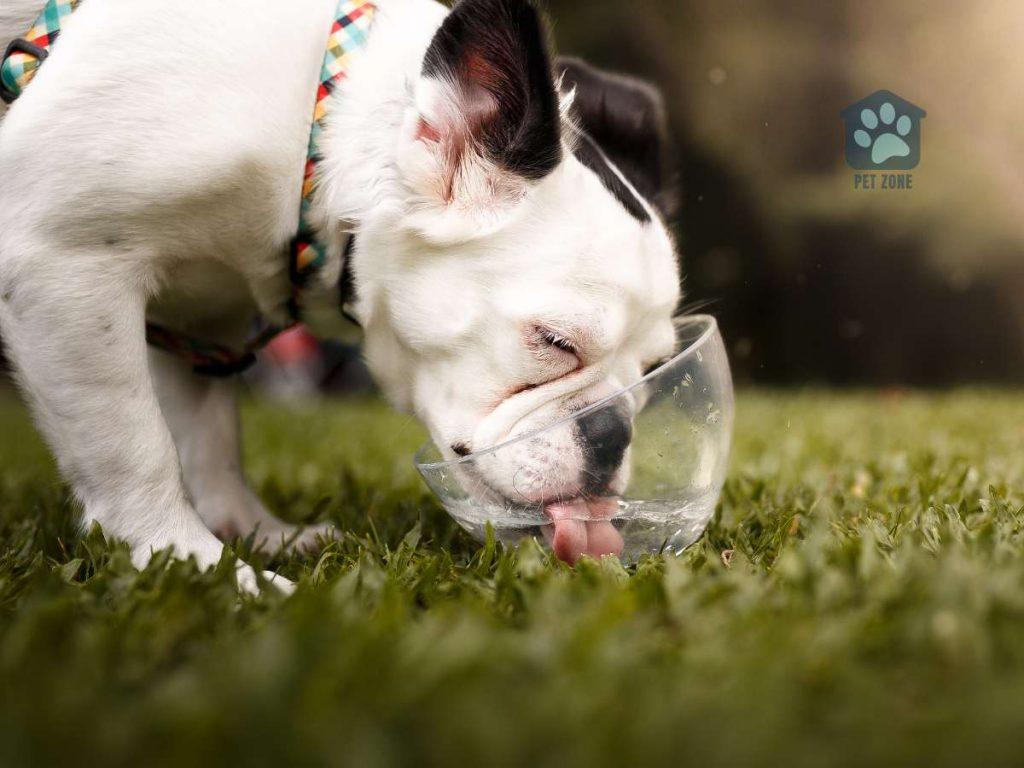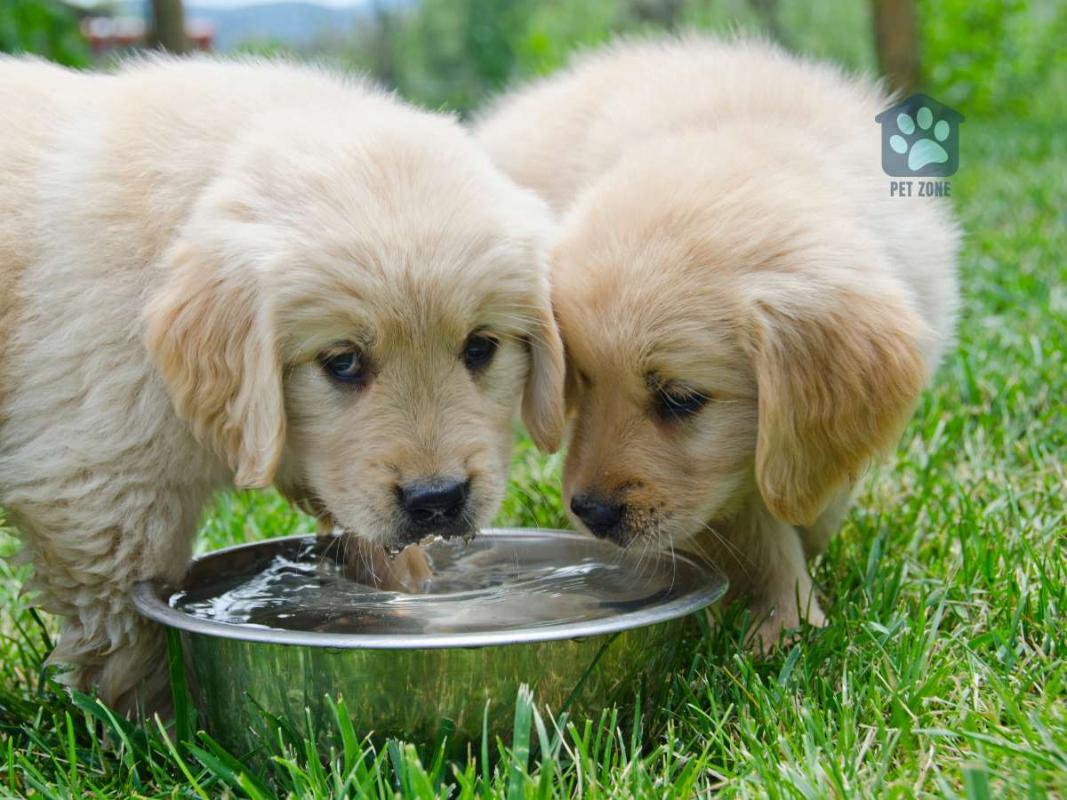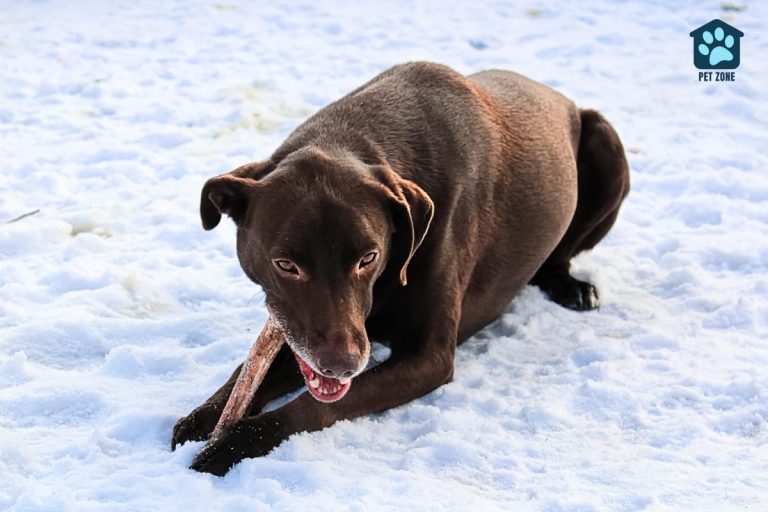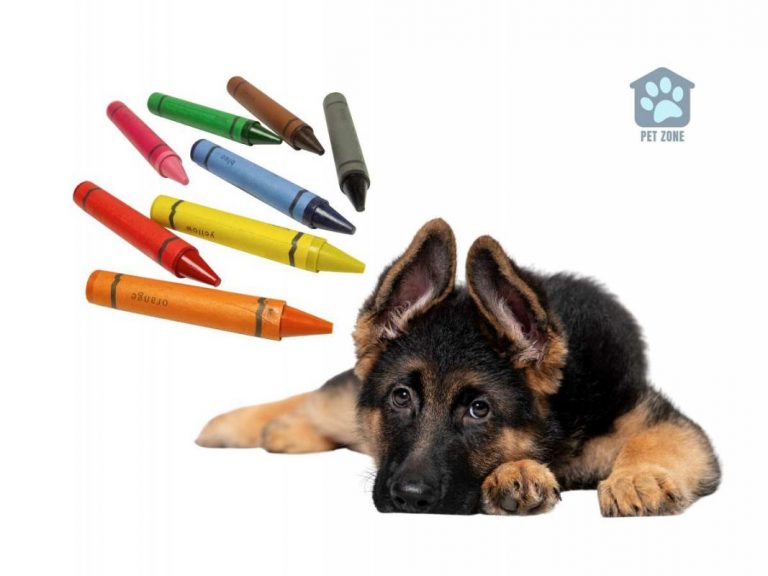Estimated reading time: 6 minutes
Should you give your dog vitamin water? Is it safe for your dog to drink it? Hydration plays a vital role in keeping dogs healthy and happy, prompting us to explore alternative options beyond plain water.
In this article, we’ll delve into the suitability of vitamin water for your dog, and discuss the safety considerations. By the end, you’ll have the knowledge to decide whether vitamin water has a place in your dog’s water bowl.
Key Points
The Purpose of Vitamin Water
Vitamin water is a type of flavored water that is fortified with various vitamins and minerals. It often contains added sweeteners, artificial flavors, and sometimes electrolytes. The specific composition may vary between brands and flavors, but the common goal is to provide additional nutrients in a refreshing drink.
For humans, vitamin water is often positioned as a convenient way to supplement their nutrient intake. It is marketed as a beverage that can provide hydration while offering additional vitamins and minerals. The added nutrients are believed to support overall health and well-being.
The Risks of Vitamin Water for Dogs
While there may be some instances where dogs can consume vitamin water in moderation, it is important to be aware of the potential drawbacks and considerations.
Vitamin Overdosing and Nutritional Imbalances
Vitamin water contains added vitamins and minerals, which can pose a risk of overdosing in dogs. Excessive intake of certain nutrients can lead to imbalances and toxicity in dogs.
Your pup has specific dietary requirements, and providing excessive amounts of vitamins and minerals through vitamin water can lead to health problems and complications.
Potential Digestive Upset and Allergic Reactions
Dogs can have sensitivities or allergies to certain ingredients present in vitamin water, such as artificial flavors or sweeteners. Consumption of vitamin water with these additives can result in digestive upset, including diarrhea, vomiting, and gastrointestinal discomfort.
It is important to monitor your dog’s reaction to vitamin water and discontinue use if any adverse symptoms occur.
Dependence on Flavored Beverages
Regular consumption of flavored vitamin water can lead to a preference for flavored beverages over plain water. This can make it challenging to provide dogs with plain water, which is essential for their health.
Drinks Your Dog Should Avoid
While fresh water is the best and safest option for keeping dogs hydrated, there are certain drinks that are not good for dogs and should be avoided due to potential health risks. In this section, we will discuss some of the beverages that are not suitable for dogs and the reasons behind their avoidance.
Sugary and Carbonated Beverages
Drinks that are high in sugar or contain artificial sweeteners should never be given to dogs. Excessive sugar intake can lead to obesity, dental problems, and even diabetes in dogs.
Carbonated beverages, such as soda or sparkling water, can cause bloating, discomfort, and gastrointestinal issues in dogs.
Flavored and Fruit Juices
While fruits can be a healthy addition to a dog’s diet, the same cannot be said for flavored fruit juices. These beverages often contain added sugars, artificial flavors, and preservatives that can be harmful to dogs.
Additionally, some fruits and their extracts, like citrus fruits, can cause digestive upset in dogs and should be avoided in concentrated forms.
Alcoholic Drinks
Alcoholic beverages are extremely toxic to dogs. Even small amounts of alcohol can lead to alcohol poisoning, which can cause severe symptoms such as vomiting, loss of coordination, respiratory distress, and even death.
It is crucial to keep all alcoholic drinks out of a dog’s reach and never intentionally offer them any alcoholic beverages.
Dairy-Based Drinks
While milk is generally considered safe for dogs in small amounts, some dogs may develop lactose intolerance or have difficulty digesting dairy products.
As a result, giving milk or other dairy-based drinks to dogs can lead to digestive upset, including diarrhea and gas. It is advisable to observe your dog’s reaction to dairy and consult with a veterinarian before incorporating any dairy-based drinks into their diet.
Caffeinated Beverages
Caffeine, found in drinks like coffee, tea, and energy drinks, is toxic to dogs. It can cause increased heart rate, restlessness, tremors, seizures, and even life-threatening complications. Dogs should never be given any caffeinated beverages, and it is essential to keep these drinks securely stored to prevent accidental ingestion.
When it comes to providing your dog with drinks, it is crucial to prioritize their health and well-being. Avoiding the above-mentioned beverages will help mitigate potential risks and maintain your dog’s overall health.

Vitamin Water Substitutes for Dogs
While fresh water is the ideal choice for keeping dogs hydrated, there are alternatives to vitamin water that can offer both hydration and nutritional benefits. In this section, we will explore some substitute options that can be suitable and healthier choices for providing your dog with adequate hydration.
Fresh and Filtered Water
Fresh water should always be readily available to your dog. It is essential for maintaining hydration and supporting overall health.
Ensure that your dog’s water bowl is clean and filled with fresh water throughout the day. Regularly changing the water helps maintain its freshness and cleanliness.
Doggie Water
There are some products on the market specifically for dogs, such as Doggie Water, which contains essential vitamins, minerals, and electrolytes.
However, it is always best to consult with a veterinarian before introducing any new supplements or products into your dog’s diet.
Natural Electrolyte Drinks
Coconut water is a natural electrolyte-rich beverage that can be given to dogs in moderation. It provides hydration and essential minerals without the added sugars and artificial ingredients found in some commercial electrolyte drinks.
However, it’s important to offer coconut water in small quantities and as an occasional treat, as excessive intake can lead to digestive upset.
Homemade Electrolyte Solutions
In cases where your dog needs additional hydration or electrolyte replenishment, you can create a homemade electrolyte solution.
Combine clean water with a small amount of salt and a pinch of sugar, stirring until dissolved. Offer this homemade electrolyte solution to your dog in small amounts, ensuring it is well-tolerated.
However, it’s important to consult with your veterinarian before administering any homemade remedies.
Diluted Meat or Chicken Broth
A diluted meat or chicken broth can be an enticing and hydrating option for dogs. Prepare a broth by boiling lean meats (such as chicken or beef) in water and then straining the liquid. Dilute the broth with additional water to ensure it is not too concentrated.
Avoid using broths that contain excessive amounts of salt or seasonings, as these can be harmful to dogs.
Consulting with a Veterinarian
It’s essential to consult with a veterinarian before introducing any substitute drinks into your dog’s diet. They can provide personalized advice based on your dog’s specific needs and health conditions.
Your veterinarian will be able to guide you on the appropriate serving sizes, frequency, and suitability of any alternative beverages for your dog.
Conclusion
While vitamin water may seem like a convenient option, the cons associated with its consumption in dogs should be taken into account. Dogs have unique dietary requirements, and excessive intake of certain nutrients can lead to imbalances and health complications.
Giving your pet fresh water and seeking guidance from a veterinarian will help ensure that your furry friend’s hydration needs are met safely and effectively.









Very insightful. Thank you
I have an almost 4-year-old Golden Retriever and, while she will eat almost anything, I’ve never thought of giving her any liquid other than water. We don’t keep vitamin water in the house so that’s safe … but I didn’t realize dogs could consume coconut water. Thanks for the helpful tips!